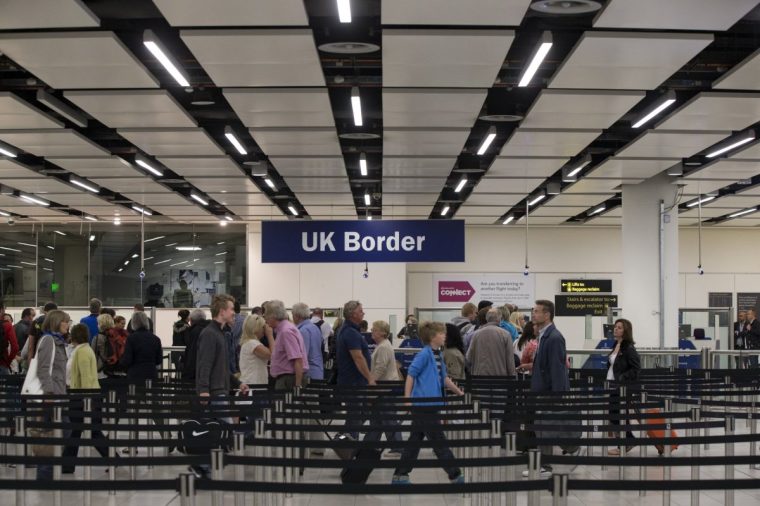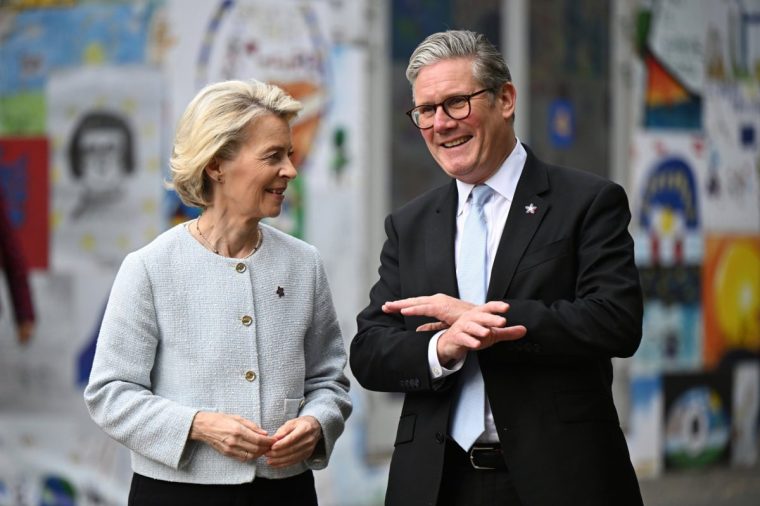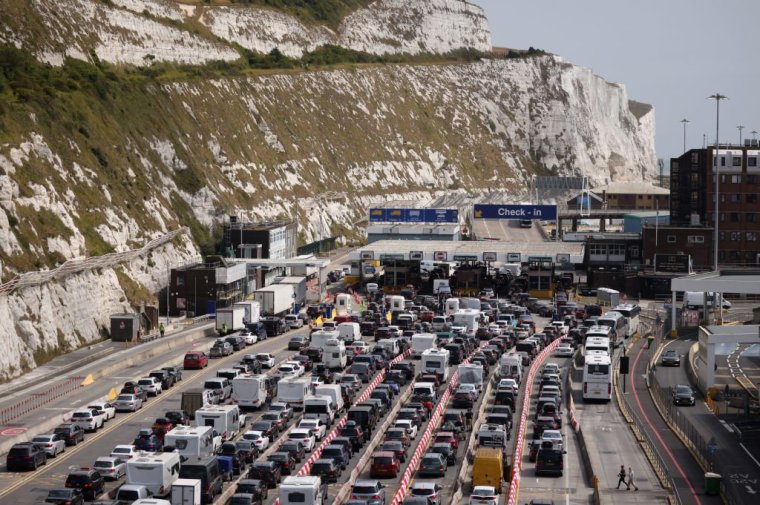EU Deal Reboots British Travel: Four Enhancements & Three Setbacks Explored
The Prime Minister has praised a new post-Brexit pact with the EU, according to the Government, this deal will significantly reduce wait times. travellers heading to Europe for their holidays.
The current week's offer aims to reduce food prices, cut through bureaucratic red tape, facilitate entry into the European Union market, and increase the United Kingdom's economy by £9 billion, according to statements from 10 Downing Street.
However, it does not cover a raft of post-Brexit travel obstacles that will persist in impacting British travelers.
The UK will continue to hold talks with the European Union on the d etails of each commitment.
E-Gates
The government has arranged an agreement which assures easier access for British citizens to European Union electronic gates at airports. This step is expected to reduce wait times at borders for vacationers.
However, it remains uncertain when this change would start, as Sir Keir Starmer expressed his desire for UK holidaymakers to access e-gates in EU nations "at the earliest opportunity."
And the arrangements still need approval from each individual member state, so there’s no guarantee it will happen. New measures will come into effect. by the summer holidays.
Since Brexit , British travelers to Europe have encountered long lines at numerous European airports As they await for their passports to be stamped.

The agreement unveiled on Monday promises to eliminate “the hated lines at border control,” the government asserts.
Nick Thomas-Symonds, the minister heading the talks with Brussels, stated his aim for an agreement that enables UK passport holders to "pass through much faster".
He said: “I think we can all agree that not being stuck in queues and having more time to spend, whether it’s on holiday or work trips, having more time to do what you want … would be a very sensible objective.”
Youth mobility
The government has consented to discuss a youth exchange program with the European Union, enabling individuals below 30 years old to travel, find employment, and pursue education within both Britain and Europe.
Nevertheless, Brussels has not yet agreed to impose a cap on the number of participants for this program, similar to how the UK manages programs with nations such as Australia and New Zealand.
Starmer mentioned that the limit on the number of individuals who can participate in the program with the EU will be determined at a later time.
Last year, Brussels proposed a plan enabling individuals aged between 18 and 30 to remain within the EU for as long as four years; however, this proposal was turned down by the previous Conservative administration.
The Labour party has proposed an annual limit with a set timeframe to guarantee their campaign promise of decreasing overall immigration would be fulfilled.
T he Tories could oppose any loosening of arrangements on youth mobility with Kemi Badenoch saying she feared it would mean a return to free movement “by the back door”.

Pet passports
As part of the new arrangement, cats and dogs will have an easier time traveling because of the implementation of "pet passports".
The government states that this move will remove the necessity of obtaining an animal health certificate for each journey, providing a significant uplift following discussions on post-Brexit reforms. After exiting the EU’s pet passport system in 2021, British travelers heading to Europe were required to ensure their pets were microchipped, receive vaccinations against rabies, and obtain a health certification.
Read Next: Trump contacts Putin following Vance stating Russian president 'lacks the ability to conclude the conflict'
Approximately 250,000 pet owners have brought their cats and dogs for treatment. The UK exited the program. by the conclusion of a post-Brexit transitional period.
"We have consistently stated that such an agreement could lead to various advantages," a government official mentioned. The Telegraph prior to the UK-EU summit in London on Monday.
Erasmus
The accord additionally states that both Britain and the European Commission ought to collaborate with an aim to create "the association of the UK to the Erasmus+ program of the European Union."
The i Paper had disclosed in December has suggested that the UK might re-enter the program, enabling British and EU youth to study in one another’s countries.
The Erasmus+ program was launched in 1987 and serves as an EU initiative offering financial support for studies, training, or sports activities abroad lasting from two to twelve months.
After Brexit, the UK left it and established the Turing Scheme as an alternative.
What aspects are excluded from the Brexit reboot agreement?
Nevertheless, the updated agreement fails to encompass specifics regarding various additional travel issues encountered by British citizens.
Touring artists
An agreement on better access to Europe for performers and creative professionals remains unsettled. The pact merely states that the European Commission and the UK "acknowledge the importance of mobility and cultural as well as artistic exchanges, including the work of traveling artists."

They will "keep working towards promoting travel and cultural exchanges," according to a leaked version of the agreement, as reported by the Telegraph , reveals.
Following Brexit, limitations have been imposed on the number of days British citizens can spend in Europe, which has affected touring musicians.
British citizens can only be in Europe for 90 days in a 180-day period. But many shows tour for longer periods than that, while some artists have a concentration of work over certain periods, which are constrained by the limit, according to trade union Equity.
Equity has called for improved access to Europe for performing artists and creative workers to form part of this week’s EU-UK summit.
However, experts say a deal would be tricky as it would mean each bloc member state rewriting customs rules on how artists travel between countries.
Biometric checks
The discussions do not include the impending biometric checks that are set to be implemented in October.
The much-delayed Entry/Exit System (EES) has prompted warnings from Kent officials. lines lasting up to 15 hours at Dover , with non-EU travellers required to give fingerprints and facial scanning.

A new application from Brussels aims to streamline processes for British travelers by enabling them to pre-submit their information. This could potentially reduce wait times; however, the tool isn’t anticipated to launch until October.
The European Council and European Parliament have now reached an agreement that the Entry Exit System (EES) will gradually be implemented over a period of six months starting in October. During this time, French officials will conduct checks at border control points located in Dover, as well as at the Eurostar terminal in St Pancras and the Eurotunnel in Folkestone.
However, French authorities have cautioned that the risk of significant hold-ups at borders would increase substantially without additional police support.
Mobile phone roaming data
Following Brexit, most UK mobile service providers now offer mobile coverage without additional charges solely within your home premises.
Mobile phone companies are not likely to eliminate the roaming fees currently applied to British customers who use their phones within the EU.
The former prohibition was part of the European single market regulations, from which the Administration has categorically declined to return.
Post a Comment for "EU Deal Reboots British Travel: Four Enhancements & Three Setbacks Explored"